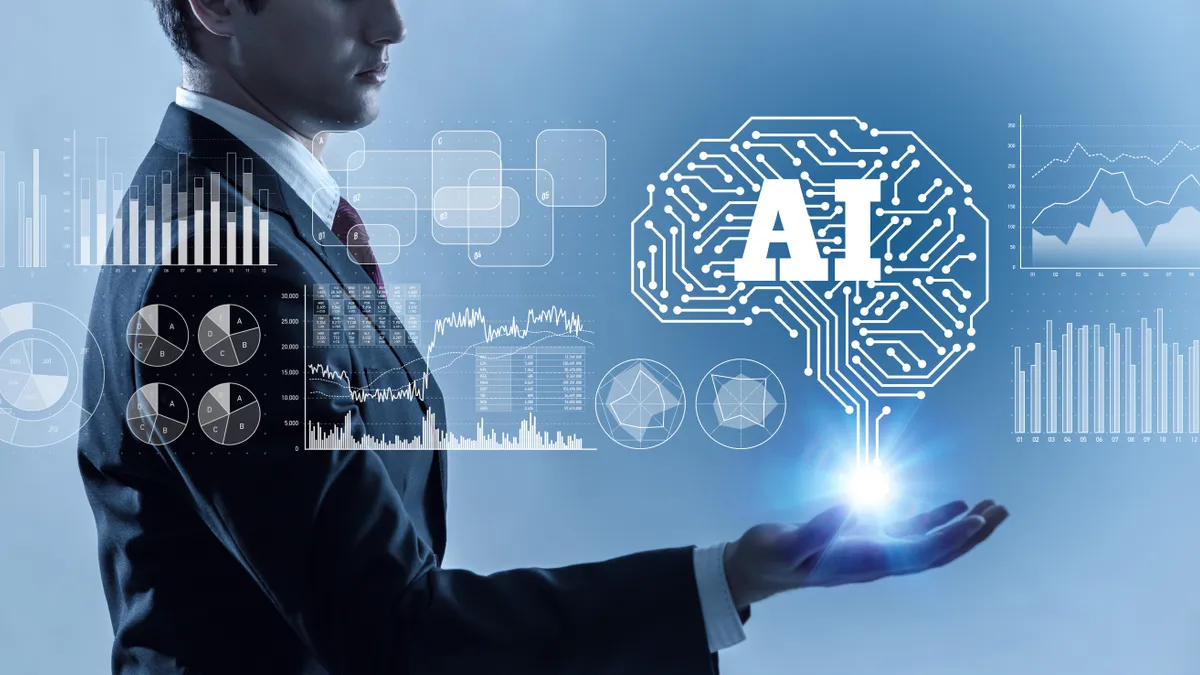LAS VEGAS — The focus on AI and its latest iteration, generative AI, is obscuring the broader changes that the legal profession is going through, says Jerry Ting, founder and CEO of contract lifecycle management company Evisort.
Much of what lawyers are doing can eventually be automated as the large language models that power generative AI become more sophisticated, Ting told Legal Dive at the 2023 Global Institute hosted by the Corporate Legal Operations Consortium (CLOC).
Lawyers, both in-house and outside, will be faced with less busy work—the kind of research and document drafting that characterizes much of lawyers’ day-to-day workload—leaving them to do the work they typically got into law to do: applying law as a practice.
Ting founded Evisort in 2016 when he was the manager of a joint Harvard Law-MIT AI project.
From that beginning, Evisort has been an AI company first and a CLM company second, he said.
The company has raised $155 million and attracted big clients like Microsoft, McKesson and NetApp. Ting expects it to turn a profit by the end of 2024, fueled by its CLM software along with contract management applications for other specialties, including procurement, sales and finance.
He believes his software has avoided the complications that come from migrating a company’s contract data into the CLM by structuring it as an overlay that reads contracts where they are. That means a legal team can open an account and be ready to go, more or less, in a matter of days since there’s no migration of contract data into the software.
With generative AI, the functionality will reach the point where you can input simple instructions, using plain language of the kind that’s typically used in a text message, and get the equivalent of first-run analysis that a lawyer might do.
While at CLOC, Ting’s company introduced some of the functionality of its generative AI technology.
Among other things, the software offers automated redlining suggestions based on the company’s contract playbook and offers draft contract language, either for a specific contract or the company’s contract clause library.
"Embracing generative AI and exploring the latest use cases will reveal the full potential of these solutions and drive incredible impact for organizations," Ting said in a statement.
Ting also announced that his company’s software is being integrated with the cloud-based enterprise operations workflow platform of ServiceNow.
Even before the spotlight swung to generative AI, the legal profession had been going through a sea change that’s easily missed, Ting said.
Lawyers can expect the change to be exciting and positive and, especially on the in-house side, there’s no reason to think it will lead to less demand for what they do.
Instead, in-house attorneys can expect their work to be more business-solutions oriented. Rather than working in their narrow legal lane, they’ll be partners with the business functions in their organization, providing the kind of value that’s been hard to systematize up to this point.











